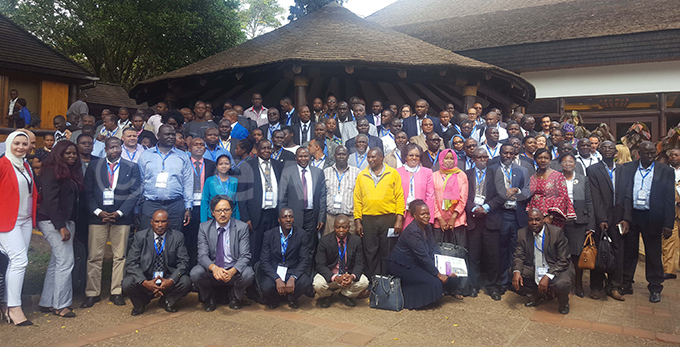Most gov'ts lack climate change mitigation measures - NEPAD
According to Fatabong, mitigation measures like use of drought resistant crop varieties, small holder water harvesting and supply facilities, as well as strategies for alleviating poverty are also lacking.
Absence of plans and policies that promote climate change mitigations measures in government programs is to blame for the low adaptation of mitigation measures by farmers.
That is why much as most African countries are making efforts to highlight the impact s of climate change in agriculture, there are still gaps in areas of adaptation.The observation was made by Esteri Fatabong, director of programs at the New Partnership for Africa' Development (NEPAD) at the 2nd Africa Climate Smart Agriculture Alliance Forum in Nairobi, Kenya recently.
According to Fatabong, mitigation measures like use of drought resistant crop varieties, small holder water harvesting and supply facilities, as well as strategies for alleviating poverty are also lacking.
"In order to catalyze better adaptation and cope with the impacts of climate change, stakeholders like governments should work together to help communities understand the impacts of climate change and how they can use available measures to cope with it," she said.
According to her, communities should be fully capacitated in crop management, disaster preparedness and access to robust technologies and information including indigenous technologies to cope with climate change issues.
The meeting that was organized by NEPAD and the government of Kenya to highlight continental and global development agreements including the SDGs and the Paris Climate Agreement and how they can help mitigate climate change effects.

"Knowledge-sharing is key in agriculture and rural transformation, through which indigenous knowledge should not be ignored," she added.
The meeting was running under the Theme "From Agreement to Action: Implementing INDCs for Growth and Resilience in African Agriculture," to reflect the emphasis placed by African countries on the agricultural sector
Dr. Abebe Haile Gabriel, FAO Deputy Regional Representative for Africa, maintained that countries need support in their Intended Nationally Determined Contributions (INDCs), through which the plight of climate smart agriculture can be delt with.
A representative from the German government Julia Kronberg elaborated on the importance of policy frameworks for addressing the adverse effects of climate change on the African continent.
In the meeting the governor of Nairobi City Dr. Evans Kidero said one of the interventions they are making is the promotion of urban farming in a sustainable way to increase agricultural productivity using small spaces.